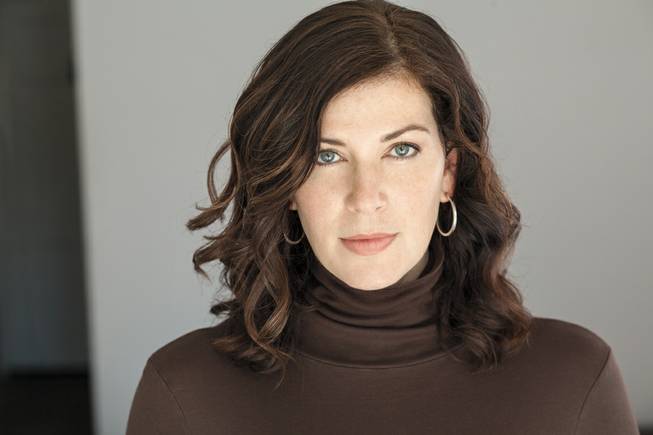
Mikel healey
Kara Cooney
Saturday, Jan. 26, 2019 | 2 a.m.
Author and egyptologist Kara Cooney will bring her National Geographic Live lecture “When Women Ruled the World” to the Smith Center on Feb. 1. She’ll speak about female leaders — Nefertiti, Cleopatra, Hatshepsut and more — who managed to rule Egypt in spite of its strict patriarchy. She will speak about the complex societies in ancient Egypt and how we are similar.
“I use Egypt as a foil to make the audience think about the reality in their own world,” Cooney said in a recent phone interview, calling while getting her nails done amid the hurry of an extensive book tour sponsored by National Geographic.
Cooney’s two books include When Women Ruled the World: Six Queens of Egypt (2018) and The Woman Who Would Be King: Hatshepsut's Rise to Power in Ancient Egypt (2014). She’s working on a new book about humanity’s attraction to authoritarian regimes. Here’s what she had to say:
Egyptologist sounds like one of those dream jobs — what are the most significant aspects of your career?
I’m dealing with 3,000 years of human history — booms and busts, ups and downs, not just the good times. [I study] human reactions to a variety of experiences — foreign invasion, government collapse, the movement of Egypt into Rome itself. Being a historian is like being a prognosticator or using scientific astrology to ask: What’s going to happen? What does the future look like? What will climate change bring in 10, 20, 50 years? I can give some insight into what humans have done before, how human systems react. It’s an important place to find myself in a world that seems to be teetering on the edge of so many different apocalypses.
How is being an egyptologist different than it appears on TV?
On TV, it’s all about the next big discovery: to identify a mummy or figure out who murdered King Tut — of course, there’s no clear evidence he was murdered. All these things are not research questions [because] they cannot be definitively answered and they only bring us so far in understanding human beings. I teach graduate students to engage in big applicable research questions. Some are working on mass migration; clothing and appearance; funerary display of kings; what kinds of coffins they brought with them into the afterlife. The bigger questions seem like they're not important on the surface, when you take out the human aspect. But I can’t see how looking at mass migration in the ancient world is not important. We can learn so much.
How is ancient Egyptian society similar to contemporary American society?
Any complex society on this planet is patriarchal. It serves an economic system of linear descent. Control of female womb, to make sure she doesn’t stray, maintains proper linear descent so that wealth can pass from one generation to another. It’s the same in today’s society as in ancient Egypt. I just went through a divorce; it’s interesting to see how society is trying to figure out who gets money, how wealth is passed down. If we were all hunter-gatherers it wouldn’t matter as much because there’s no wealth to pass down. There’s much more sexual freedom. But it’s all changing — that’s good, right? The other unhappy truth is that every time a female took power there was a social pushback on a very large scale in Egypt. You can see a similar pushback here.
You’ve written two books about female rulers in ancient Egypt. What’s the takeaway?
Women who ruled in Egypt were not fulfilling a feminist fantasy. Women ended up serving a system that serves the patriarchy. Look at female leaders today that, in the end, serve the system. Just because a woman rules — today or in the past — that doesn't mean it really changes things. I don’t want to write a revisionist history. Yes, women ruled the world in ancient Egypt, but it doesn’t mean what we want it to mean.
What could people today learn from these past rulers?
Women are approaching equal levels of men — getting college degrees; they’re not as sexually controlled and they don’t have to stay in the system of marriage. There’s more choice for women. For the first time, women can go out into world and actually change the system. That’s why there so much social pushback. People know the system is changing and are trying to do something that saves the system that rewards them. There’s a lot of change yet to come.
If you could time travel to ancient Egypt, where would you visit?
I’d want to hang out in 18th Dynasty Egypt: Thebes in the south, Memphis or Heliopolis in the north. I’d see what it’s like in palace or temple rituals, who had access, what marketplaces were like, how people interacted with one another, see those human systems in action. But until a time machine is developed, I’ll continue to do what I do.
Any plans to visit the Luxor while you’re in Vegas?
I’ve been before. It’s wonderful to see how Egypt enters into our pop cultural memory and identity.
